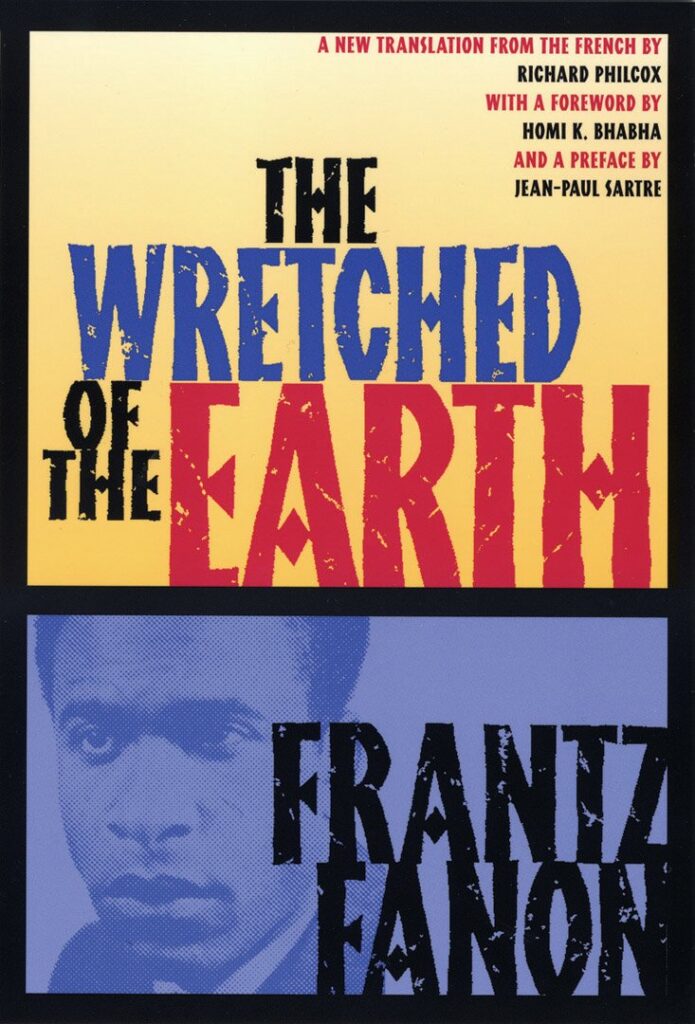The Wretched of the Earth by Frantz Fanon
Frantz Fanon was a psychiatrist born in Martinique who joined the French army, moved to Algeria with this army and then abdicated to join the Algerian resistance movement. In his work as a psychiatrist he worked with both people fighting on the French side and people fighting on the Algerian side. This book can be seen as a summary of his insights on the psyche of colonized peoples. This is a seminal non-fiction text in the world of colonial and post-colonial literature as it talks with such precision of the mental impacts of colonialism, with a strong focus on the people who have been colonized.
One of Fanon’s main points that is probably what he is best remembered for in this book is that he argues that violence is necessary for the true freedom of colonized peoples and without violence there can be no freedom.
‘Violence alone, violence committed by the people, violence organized and educated by its leaders, makes it possible for the masses to understand social truths and gives the key to them.’
– Chapter 2
This clearly was a revolutionary thought, when we consider that the text was originally published in 1961 – a time when many African countries were still fighting for their independence in very violent wars. Fanon in this manner, rejected the idea of a peaceful handing over of power in the sentiment that you cannot fight a violent system – such as colonialism and apartheid – without violence. Many have refuted this argument and tried to show the danger of using violence as a tool such as the philosopher Hannah Arendt who as a holocaust survivor was very critical of any form of violence.When we read texts like Fanon it is important to always situate them in their times which makes it easier to understand them.
Undoubtedly, Fanon was a great thinker who had the insight and capacity to understand the massive beast that is colonialism with a clarity that few had been and have been able to master. Despite this great insight he still was not able to see women as playing a significant role in anything and women are often mentioned only as what seems like an afterthought which is unfortunate for a thinker of his capacity because he fails to explore the effects of colonialism fully on his given population. This may be largely due to the fact that the people that he worked with as a psychiatrist were soldiers fighting on both sides of the Algerian war for independence who tended to be men.
There is a timelessness to this text, as even when it is read today it resonates with many people in post-colonial states despite it having been written long ago This is because of its in depth analysis of racial structures of oppression that are still upheld today.




